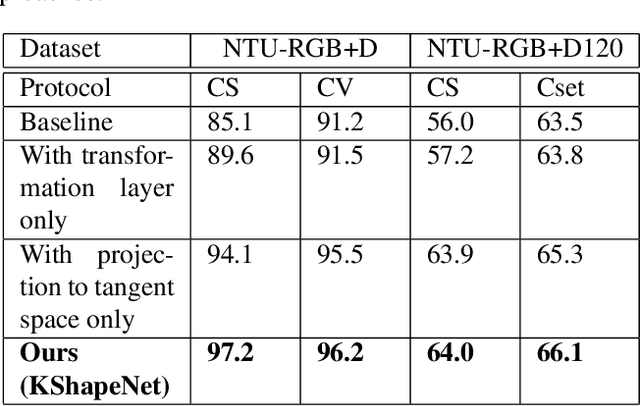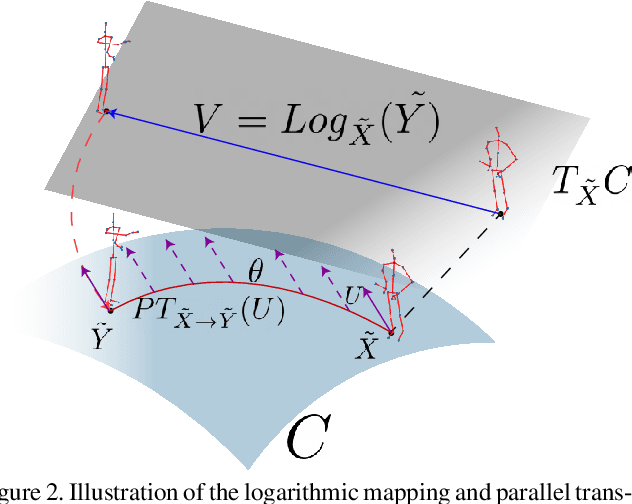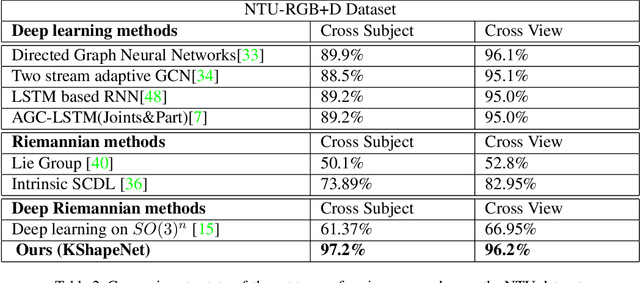Racha Friji
KShapeNet: Riemannian network on Kendall shape space for Skeleton based Action Recognition
Nov 24, 2020



Abstract:Deep Learning architectures, albeit successful in most computer vision tasks, were designed for data with an underlying Euclidean structure, which is not usually fulfilled since pre-processed data may lie on a non-linear space. In this paper, we propose a geometry aware deep learning approach for skeleton-based action recognition. Skeleton sequences are first modeled as trajectories on Kendall's shape space and then mapped to the linear tangent space. The resulting structured data are then fed to a deep learning architecture, which includes a layer that optimizes over rigid and non rigid transformations of the 3D skeletons, followed by a CNN-LSTM network. The assessment on two large scale skeleton datasets, namely NTU-RGB+D and NTU-RGB+D 120, has proven that proposed approach outperforms existing geometric deep learning methods and is competitive with respect to recently published approaches.
 Add to Chrome
Add to Chrome Add to Firefox
Add to Firefox Add to Edge
Add to Edge